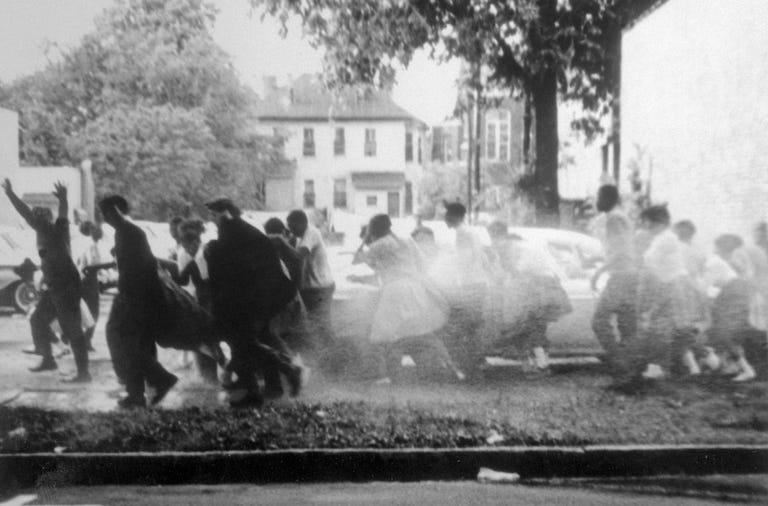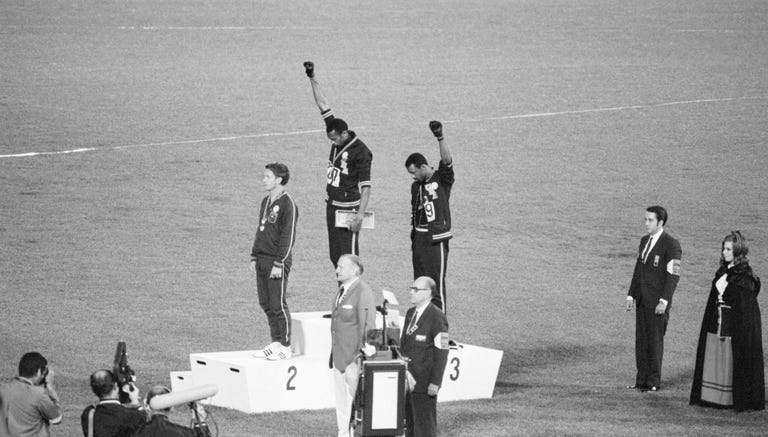Mike Ditka Just Showed Why the NFL’s National Anthem Protests Are Necessary
“There has been no oppression in the last 100 years that I know of.”
 Getty
Getty
By Jack Holmes October 10, 2017
Mike Ditka is a Hall of Fame football player and coach who made a damn good cameo in Will Ferrell’s Kicking and Screaming. He is also the latest standard-bearer for the growing number of Americans completely allergic to historical reality. You need only look to his latest comments on the so-called national anthem protests in the NFL, in which a group of primarily black players have demonstrated during pregame festivities in various ways to bring attention to racial inequality in the criminal justice system and a lack of accountability for police who kill unarmed black citizens.
Like many people—including the president—Ditka has conflated the vehicle for their protest with the subject of the protest. (Again, the players are not protesting the anthem or the flag, and their stated intention has nothing to do with disrespecting the armed forces. No player has criticized the troops.) But Ditka also took things to a new level of unreality.
It’s one thing to contend there’s no racial injustice in this country right now. Although that flies in the face of reality—the statistics on criminal justice are quite clear—it is not yet a settled matter of historical record. But the idea that there has been “no oppression in the last 100 years”—since 1917—is a statement beyond comprehension.
Mike Ditka is 77 years old. He was alive during the Civil Rights Movement, when African-American citizens were dragged off to jail for sitting at the wrong lunch counter or in the wrong part of the bus. He was alive when black Americans were sprayed with firehoses and had police dogs sicced on them because they dared march for equal rights in Birmingham, Alabama. He played in the NFL, with black teammates, throughout the 1960s as the movement hit its prime. Did he never speak to them about their experience in America, as Martin Luther King, Jr. marched on his TV screen? Did he ever wonder why John Lewis, now a United States congressman, was willing to nearly die marching alongside King in Selma?
A 1963 civil rights protest in Birmingham, Alabama.
 Getty
Getty
This is all within the last 60 or so years. The 1920s—still within Ditka’s gobsmacking historical window of racial harmony in America—was the heyday of the Ku Klux Klan. One of the Klan’s methods of enforcing white supremacy and the oppressive regime of Jim Crow—also a fixture of the real Ditka-era America—was lynching. According to the The NAACP, there were 4,743 recorded lynchings between 1882 and 1968. This is the reality. This is what happened in parts of the United States of America as recently as 50 years ago.
And this is also why the national anthem protests Ditka finds so unacceptable are so necessary. While Ditka’s apparent ignorance is certainly extraordinary, his basic unfamiliarity with the experience of being black in America is not. Put simply, many white people are often unaware that injustice exists because it does not affect them personally, as the rest of The Washington Post‘s writeup of Ditka’s conversation shows:
Later on Monday, Gray asked Ditka, “For those who want social justice, and for those who look back at the lives of Muhammad Ali and Jesse Owens, and John Carlos and Tommy Smith, your response would be?”
“I don’t know what social injustices have been,” the Pro Football Hall of Fame inductee replied. “Muhammad Ali rose to the top. Jesse Owens is one of the classiest individuals that ever lived. I mean, you can say, are you talking that everything is based on color? I don’t see it that way.
“I think that you have to be colorblind in this country. You’ve got to look at a person for what he is, and what he stands for and how he produces, not by the color of his skin. That has never had anything to do with anything.
“But all of a sudden, it’s become a big deal now, about oppression. There has been no oppression in the last 100 years that I know of.
“Now maybe I’m not watching it as carefully as other people. I think the opportunity is there for everybody. Race, religion, creed, color, nationality—if you want to work, if you want to try, if you want to put effort into yourself, I think you can accomplish anything.”
In the United States, only white people have the luxury of pretending that people can be colorblind. (In fact, this was a running joke on The Colbert Report.) People of color know this is not the case, and the national anthem protests—like Muhammad Ali’s or Jon Carlos’ and Tommie Smith’s before it—are an attempt to make the wider population (that is, white people) aware that inequalities and discrimination exist. If you have never been discriminated against personally, it is much easier to believe there is no discrimination and the system is just. That was the power in Martin Luther King’s decision to march peacefully, knowing the reaction from southern whites would be violent. It demonstrated to the wider world how the system actually worked.
Tommie Smith and John Carlos at the 1968 Olympic Games.
 Getty
Getty
Ditka’s belief that “if you want to work, if you want to try…you can accomplish anything” is also simply not true across the board. Racial discrimination in hiring processes is real and pervasive. In one study, résumés with “white-sounding names” got 50 percent more callbacks than résumés with “black-sounding names.” If you’re black in America, wanting to work is not always enough.
“There has been no oppression in the last 100 years that I know of.” – Mike Ditka
In another demonstration of historical illiteracy, what Ditka and other opponents of today’s protests don’t seem to understand, is that MLK and Muhammad Ali were deeply unpopular in their time. Like Colin Kaepernick and those who have followed him, they were reviled by many as ungrateful upstarts who were always choosing the wrong place and time to protest. Except that is the very point of protest: It is supposed to be at the wrong place and time. It is supposed to make people uncomfortable and frustrated, because that is the baseline experience of the oppressed classes in society. If the status quo works for you, you’re unlikely to change the status quo—unless others can show you that it is morally indefensible.
The reactions from others around the National Football League have begun rolling in. That includes one from Martellus Bennett, a tight end for the Green Bay Packers whose brother, Michael, had a telling experience of his own this year when Las Vegas police reportedly told him they would “blow his fucking head off” when they mistook him for a criminal suspect after the Mayweather-McGregor prize fight in August.
Michael Bennett’s teammate on the Seahawks, Richard Sherman, weighed in as well:
Martellus Bennett @MartysaurusRex Hasn’t seen oppression in 100 years bruh?….
Richard Sherman @RSherman_25 Some only see what they want to see
Sherman may indeed have made the essential point. It seems Ditka, likes millions around the country, has developed an entire world-historical view tailored to the idea of unequivocal American greatness. There can’t be racial discrimination, because there hasn’t been for a century. When you mold your own reality, even basic history isn’t safe. That can have dangerous consequences for the present.
Editor’s Note: It was Michael Bennett, not Martellus, who was involved in an incident with Las Vegas police in August. We regret the error.
